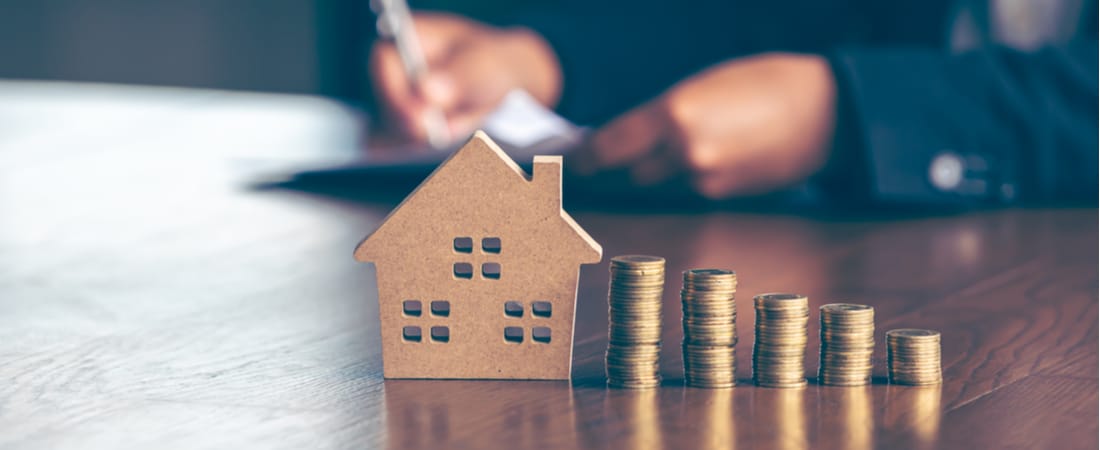Is it better to rent or own your home in retirement? This reader wants to know if they should continue renting or use their savings to buy a home.
Q: I’m 66 years old, with $5,100 dollars in monthly income from the government. I have no living dependents. I currently pay $1,600 a month in rent and am a veteran. At this point in my life, should I buy a condo or single level house or continue to rent? I have $20,000 in savings and no debt or credit card balances.
Is It Better to Rent or Own Your Home in Retirement?
A: Thanks for your question. You’ve done a good job managing your money throughout your career, and now seem to have a solid retirement plan. The questions on the table: Why buy a home now? And, what’s driving that decision? You need to think about whether owning a home would be a better option for you financially, socially and emotionally than staying where you are. (By the way, your question didn’t include even a hint of whether you like where you live or what buying a new home in your neighborhood of choice could cost – but those are pretty important issues as well.)
You have $20,000 in savings and if that is all you have, you don’t have a huge emergency reserve. While it’s one-third of your annual income, most lenders would like to see you put down 20 percent towards the purchase of a new home. On a $100,000 home, you would use all of your savings for the downpayment and have no money left to pay for the expenses of the purchase of the home.
Of course, you are a veteran and might qualify for a loan that might allow you to close without putting down much of a down payment. Even so, you’ll have to pay costs associated with the purchase of the home. While you may be able to finance some of those costs through a larger loan or a small or zero down payment loan, you’ll need to figure out whether your monthly expenses in that new home will be more or less than what you pay now – and if you’re willing to change your spending to accommodate those new expenses.
Understanding the Costs of Homeownership
At the amount you pay now in rent, you have to see if the cost of your loan, any assessments on a condominium, insurance expenses and real estate taxes would be less or greater than what you pay now.
Let’s say you find a home to buy that costs $150,000 and your loan is for the full amount of the purchase price. Your monthly mortgage payment on that loan at 3 percent interest would be around $1,010 per month. If real estate taxes are around 1 percent of the purchase price (depending on the state, they could be as much as 3 percent of the purchase price), your real estate taxes would be around $125 per month and we think you’d pay around $40 per month for your homeowner’s insurance. The total for your monthly costs would be around $1,175. Now, if you end up in a condominium building, you might have monthly assessments of $200. At this point, you’d be shelling out $1,375 per month for the place.
We have no idea how far $150,000 goes towards buying a home that replicates the standard of living you have right now — and please understand, these numbers are general. But we wanted you to see that while you might save $100 or so dollars per month in our example, you will also have other costs, immediately and over time, including moving, fixing up the new place and even spending on maintaining the new home over the years now that you’ll have to bear that expense and not a landlord.
How to Proceed If You Decide to Buy a Home in Retirement
But, is this a dream you’ve long had? Have you always wanted to own your own home? In some ways, as you go into retirement, it may feel like this is your last chance to drive this part of your destiny.
For many people, buying a home is a much more personal decision than financial. While your finances need to be in place, they seem to be in good enough shape. And, at the end of the day, you may want to indulge this dream.
If so, your next step is to sit down (virtually or in person) with a loan officer at a savings and loan institution or credit union near you, and perhaps also with a mortgage lender or mortgage broker.
That person should be able to help you figure out how much you can afford to borrow, what type of loan might be best for you, and see if there are any issues with your credit history that might cause you problems in applying for a loan. On a separate note, you can research properties in your area online to see if any of them meet your criteria and requirements. Then, you can hire a real estate agent to tour those properties and see if you can make your dream a retirement reality.
Good luck, and let us know what you end up doing.
More on Topics Related to Is It Better to Rent or Own Your Home in Retirement
Home Buying, Selling and Getting a Mortgage in Retirement
Should I Refinance My Mortgage Before Retirement?
5 Best States to Retire in 2020
Managing Mortgage Payments in Retirement







Leave A Comment